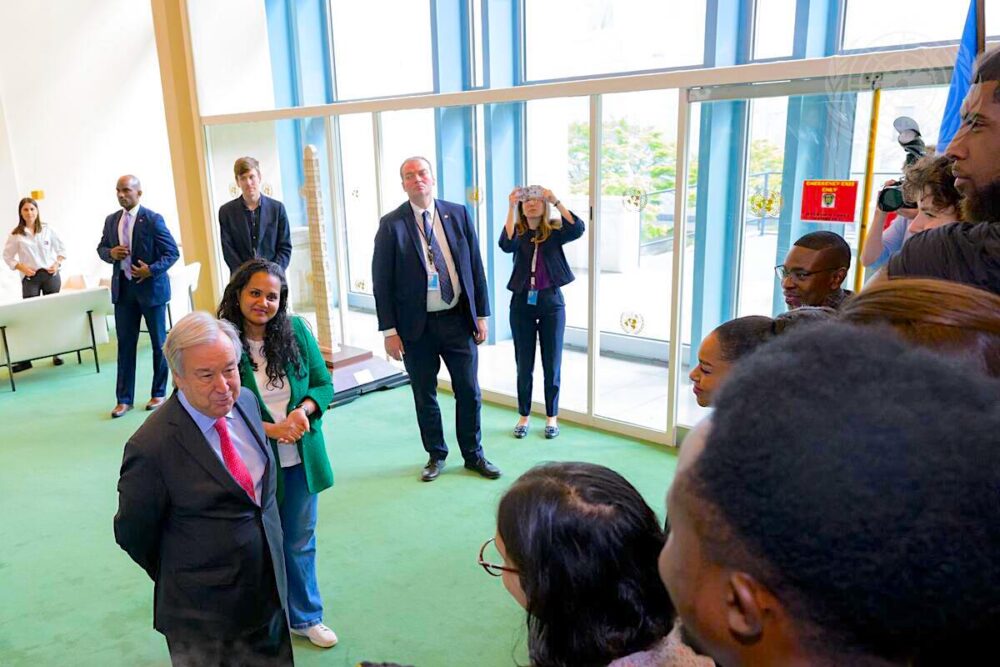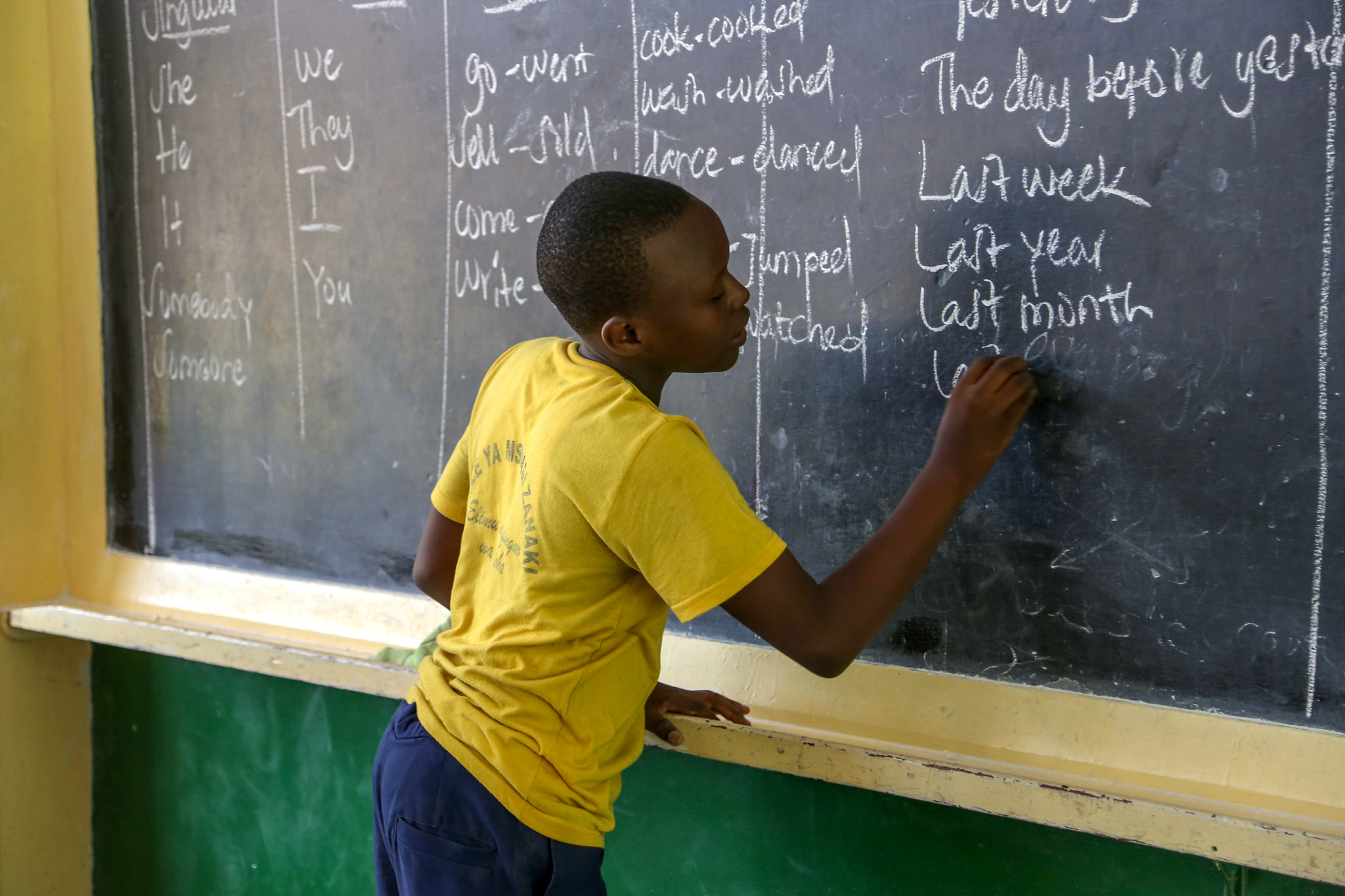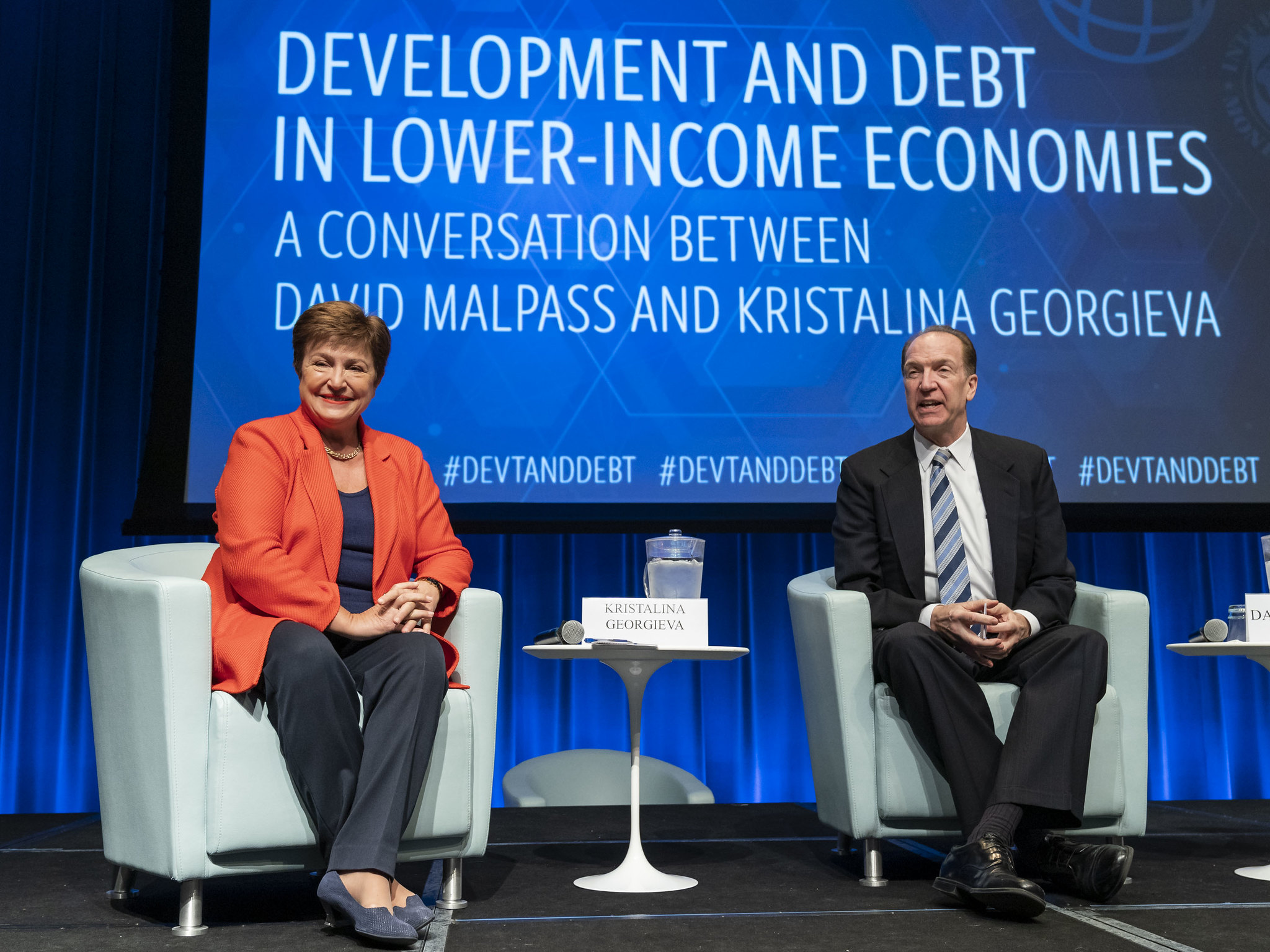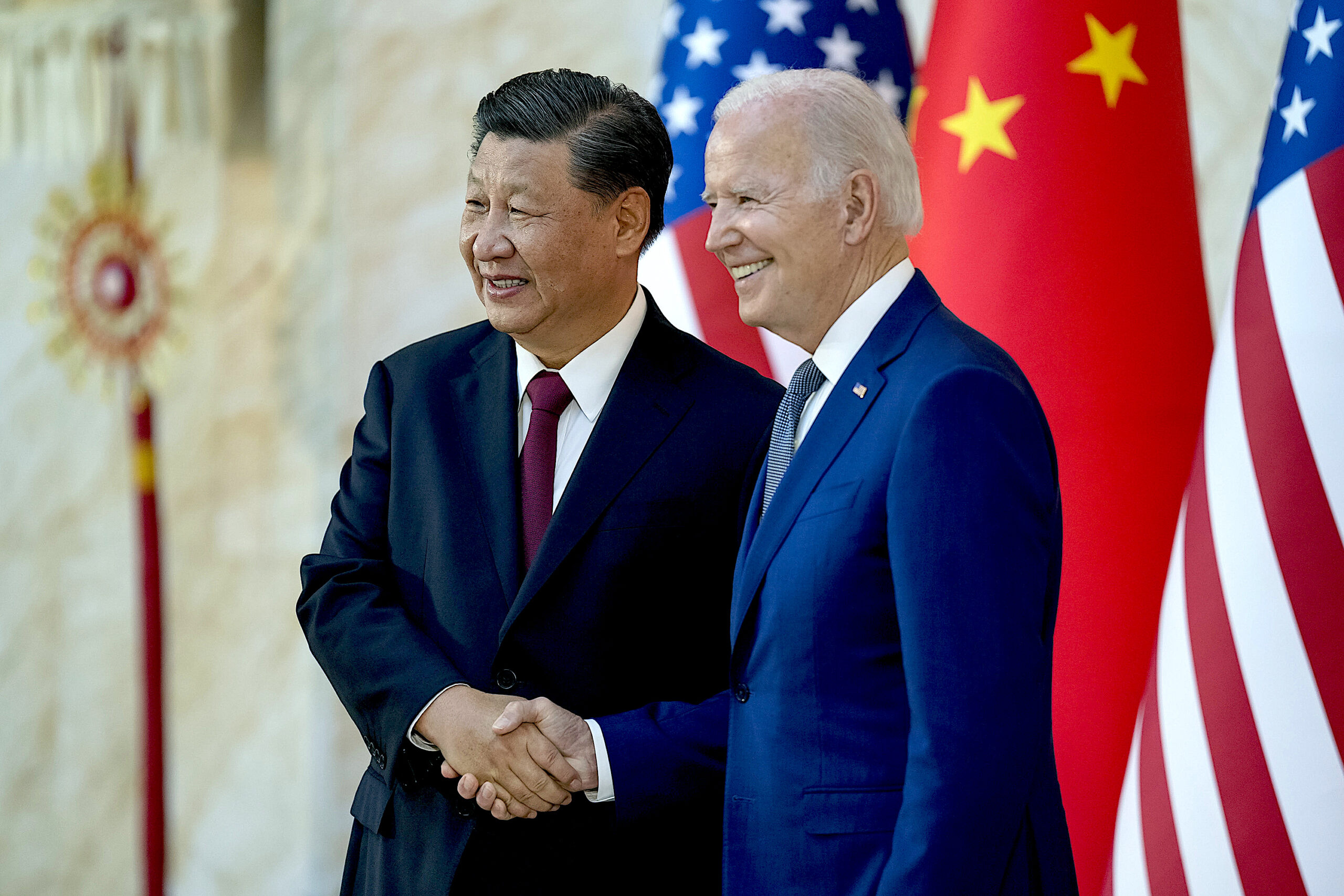Lower interest rates and longer-term paybacks that match the pace of underlying social progress are key to successful development finance, writes Jeffrey Sachs.

U.N. Secretary-General António Guterres, front left, with Young Leaders for the Sustainable Development Goals on April 24. (U.N. Photo/Manuel Elías)
By Jeffrey D. Sachs
The New World Economy
 The key to economic development and ending poverty is investment. Nations achieve prosperity by investing in four priorities.
The key to economic development and ending poverty is investment. Nations achieve prosperity by investing in four priorities.
Most important is investing in people, through quality education and health care. The next is infrastructure, such as electricity, safe water, digital networks and public transport.
The third is natural capital, protecting nature. The fourth is business investment. The key is finance: mobilizing the funds to invest at the scale and speed required.
In principle, the world should operate as an interconnected system. The rich countries, with high levels of education, healthcare, infrastructure, and business capital, should supply ample finance to the poor countries, which must urgently build up their human, infrastructure, natural and business capital.
Money should flow from rich to poor countries. As the emerging-market countries became richer, profits and interest would flow back to rich countries as returns on their investments.
That’s a win-win proposition. Both rich and poor countries benefit. Poor countries become richer; rich countries earn higher returns than they would if they invested only in their own economies.
Strangely, international finance doesn’t work that way. Rich countries invest mainly in rich economies. Poorer countries get only a trickle of funds, not enough to lift out of poverty. The poorest half of the world (low-income and lower-middle-income countries) currently produces around $10 trillion a year, while the richest half of the world (high-income and upper-middle-income countries) produces around $90 trillion.
Financing from the richer half to the poorer half should be perhaps $2-3 trillion year. In fact, it’s a small fraction of that.
Short-Term Finance for Long-Term Investment

English language class in Zanaki Primary School in Dar es Salaam, Tanzania, 2017. (Sarah Farhat/World Bank/Flickr, CC BY-NC-ND 2.0)
The problem is that investing in poorer countries seems too risky. This is true if we look at the short run. Suppose that the government of a low-income country wants to borrow to fund public education.
The economic returns to education are very high, but need 20-30 years to realize, as today’s children progress through 12-16 years of schooling and only then enter the labor market. Yet loans are often for only five years, and are denominated in U.S. dollars rather than the national currency.
Suppose the country borrows $2 billion today, due in five years. That’s okay if in five years, the government can refinance the $2 billion with yet another five-year loan. With five refinance loans, each for five years, debt repayments are delayed for 30 years, by which time the economy will have grown sufficiently to repay the debt without another loan.
Yet, at some point along the way, the country will likely find it difficult to refinance the debt. Perhaps a pandemic, or Wall Street banking crisis, or election uncertainty will scare investors. When the country tries to refinance the $2 billion, it finds itself shut out from the financial market. Without enough dollars at hand, and no new loan, it defaults, and lands in the IMF emergency room.
Like most emergency rooms, what ensues is not pleasant to behold. The government slashes public spending, incurs social unrest and faces prolonged negotiations with foreign creditors. In short, the country is plunged into a deep financial, economic and social crisis.
Unable to Borrow Long Term
Knowing this in advance, credit-rating agencies like Moody’s and S&P Global give the countries a low credit score, below “investment grade.” As a result, poorer countries are unable to borrow long term. Governments need to invest for the long term, but short-term loans push governments to short-term thinking and investing.
Poor countries also pay very high interest rates. While the U.S. government pays less than 4 percent per year on 30-year borrowing, the government of a poor country often pays more than 10 percent on five-year loans.
The IMF, for its part, advises the governments of poorer countries not to borrow very much. In effect, the IMF tells the government: better to forgo education (or electricity, or safe water, or paved roads) to avoid a future debt crisis. That’s tragic advice! It results in a poverty trap, rather than an escape from poverty.

IMF Managing Director Kristalina Georgieva and World Bank President David Malpass during a World Bank panel in Washington, Feb. 10, 2020. (IMF/Cory Hancock)
The situation has become intolerable. The poorer half of the world is being told by the richer half: decarbonize your energy system; guarantee universal healthcare, education and access to digital services; protect your rainforests; ensure safe water and sanitation; and more. And yet they are somehow to do all of this with a trickle of five-year loans at 10 percent interest!
The problem isn’t with the global goals. These are within reach, but only if the investment flows are high enough. The problem is the lack of global solidarity. Poorer nations need 30-year loans at 4 percent, not five-year loans at more than 10 percent, and they need much more financing.
Put more simply, the poorer countries are demanding an end to global financial apartheid.
More Money at Better Rates
There are two key ways to accomplish this. The first way is to expand roughly fivefold the financing by the World Bank and the regional development banks (such as the African Development Bank). Those banks can borrow at 30 years and around 4 percent, and on-lend to poorer countries on those favorable terms.

Chinese President Xi Jinping and U.S. President Joe Biden in their first direct meeting on Nov. 14, 2022 at the G20 summit in Bali, Indonesia. (White House, Wikimedia Commons, Public domain)
Yet their operations are too small. For the banks to scale-up, the G20 countries (including the U.S., China and EU) need to put a lot more capital into those multilateral banks.
The second way is to fix the credit-rating system, the IMF’s debt advice, and the financial management systems of the borrowing countries. The system needs to be reoriented towards long-term sustainable development. If poorer countries are enabled to borrow for 30 years, rather than five years, they won’t face financial crises in the meantime.
With the right kind of long-term borrowing strategy, backed up by more accurate credit ratings and better IMF advice, the poorer countries will access much higher flows on much more favorable terms.
The major countries will have four meetings on global finance this year: in Paris in June, Delhi in September, the U.N. in September and Dubai in November. If the big countries work together, they can solve this. That’s their real job, rather than fighting endless, destructive, and disastrous wars.
Jeffrey D. Sachs is a university professor and director of the Center for Sustainable Development at Columbia University, where he directed The Earth Institute from 2002 until 2016. He is also president of the U.N. Sustainable Development Solutions Network and a commissioner of the U.N. Broadband Commission for Development. He has been adviser to three United Nations secretaries-general, and currently serves as an SDG Advocate under Secretary-General Antonio Guterres. Sachs is the author, most recently, of A New Foreign Policy: Beyond American Exceptionalism (2020). Other books include: Building the New American Economy: Smart, Fair, and Sustainable (2017) and The Age of Sustainable Development, (2015) with Ban Ki-moon.
This article is from The New World Economy.
Views are solely those of the author and may or may not reflect those of Consortium News.

Re commenters Bill Wolfe and JonnyJames, Sachs and Co destroyed my country.
Most would agree with the 4 basics, except probably the private central banks, especially global corporations and wealthy investors. Yes to all except the environmental WEF green agenda, but the addition of public and private business, public central banks ie China and Bank of North Dakota. Not private bank fifedoms like Jamie Dimon’s JPMorgan Chase. I know well established but worth pointing out
Jeffrey Sachs says make poor country borrowing easier, revise the lending system (credit ratings, interest rates, long term loans) but rich financial institutions the IMF etc still get – alarm bells –
‘a return for their investments’.
Even Micael Hudson lets the borrowing mantra and the sovereign right of a country to print its own money, to pass without arousing too much attention, but attention to it he does make.
Milton Freidman did, like most of his economics, have wealth and corporate backing and he did lay the ground work for making money printing generalised anthema.
Economic Hitman Perkins spells it out, country borrowers can be leveraged and manipulated to toe the US line.
I think Jeffrey Sachs is being caught by the coat tails, by the close monitoring security state.
Consortium News, a wonderful opportunity to have a livestream with economists such as Michael Hudson, Stephanie Kelton, Steve Keen, Ha-Joon Chang have a discussion. Let the economic system be confronted
corruption is a logical by-product and real-life problem that inhibits meaningful investments in poor(er) economies.
The IMF is the corrupt one. They hand out these loans to poorer countries with conditions that they use American, or other global companies to do the work. When the debt comes to pay, the building either didn’t get done, or the profits projected from the building projects go into the hands of the American bankers and other large corporations.
Then, they make the poorer countries, become even poorer.
America does not care about these other countries becoming better. The only thing that America cares about is putting more dolars in the hands of its largest countriess.
Sachs will never be able to make amends for the shock that he administered to various countries. That he can advocate for an expansion of the current global financial architecture shows how deeply unserious he is. No one outside of the World Bank and IMF believes in the mission of either of those organizations. People and organizations around the world have been fighting for their abolition for decades, as Sachs knows.
No doubt…rich countries need to stop exploiting poor countries in order to keep staying rich. Overall, it is the Western white race that has caused all these problems and still at it. There is no real interest in lifting poorer countries out of poverty…there only is interest in stealing even more for bigger profits.
Somewhat mystified with rather optimistic substance / tone Mr. Sachs’ piece.
While obvious solutions are available (and presented thanks sir and CN) expect international capital less charitable than his ideal.
Hoping I’m wrong…
How ’bout no interest?
Socialism is the only way. Capitalist investment sharks need not apply.
Surely Mr. Sachs knows that the poverty trap is not just the result of investment.
It’s capitalism and the entire Imperial and Neo-colonial “development” model which is based on extraction and exploitation (of people and planet). “Developing” countries rely on foreign investment for exports of raw materials and cheap labor, not investment to meet domestic needs and economies. That’s the “Washington Consensus”. That’s Wall Street Finance. That’s the “rules based order”. That’s WTO, GATT, and NAFTA (and whatever its called now). That’s 800 US military bases. That’s what John Perkins’ book called “The Confessions of an Economic Hit Man” is all about.
Sachs knows all this – so why doesn’t he call it out?
I agree. I would like to see Sachs have a debate about debt, the IMF, US dollar hegemony, etc. with prof. Michael Hudson.
or James Galbraith, or Richard Wolff. It’s a shame David Graeber isn’t still around, he died way too young.